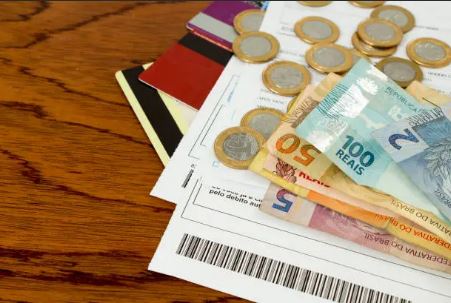Statistics show that the number of people struggling with debt and over-indebtedness in Brazil is quite significant.
To address this issue and help the population manage their personal and family budgets, build emergency funds, and avoid uncontrolled debt, the Central Bank of Brazil (BC) has issued a resolution requiring financial institutions and payment services to promote financial education for their clients.
Experts emphasize that achieving the goals outlined in the BC’s resolution requires presenting financial knowledge in an accessible and easily understandable manner.
Support for immigrants
Brazil welcomes many immigrants from around the world. To assist those who arrive and face a new financial reality and the particularities of the Brazilian financial system, the Central Bank provides information on various topics.
Those include Brazilian currency and Real banknotes, financial organization concepts, differences between paying upfront and on credit, banking fees, and issues with financial institutions.
Government program
The Brazilian government has launched a program called ‘Desenrola’ to help individuals with debt resolve their financial issues and improve their situation.
Launched in September 2023, this program aims to facilitate debt negotiations with special conditions such as discounts and installment plans, and to provide financial guidance to prevent future indebtedness.
Key program guidelines
Track your spending closely
To keep control of your finances, start tracking your spending closely. Use a spreadsheet, an app, or even a notebook—whatever works best for you.

The key is to set aside at least half an hour once a week to review your monthly expenses. Pick a fixed day for this task and make it a routine part of your schedule.
Plan your purchases
Once your debts are paid off, you may regain access to your credit card. While it can be useful, it can also lead to new debt.

Whenever possible, save up and pay in cash rather than charging items to your card. If you do use credit, always aim to pay the full statement balance, as credit card interest rates are among the highest.
Avoid using your card for regular expenses like groceries; reserve it for larger or urgent purchases.
Start saving money
Instead of waiting for the day you have extra money to save, start now with what you can afford today.
Saving a little is always better than saving nothing. Building the habit of saving a portion of your income each month is the best financial practice. Those who develop this habit can transform their lives.
Saving helps you manage unexpected expenses, like a broken refrigerator or a needed medication, without resorting to credit.

B3’s program
B3, the São Paulo stock exchange, is Brazil’s leading securities and financial assets market where investors buy and sell stocks, bonds, commodities, and futures contracts.
Like the government, B3 also offers financial education courses to guide individuals and provide financial relief to those struggling with payments, helping to break the cycle of indebtedness and promote a more sustainable financial recovery.
Digital influencers in financial education
In recent years, Brazil has seen a significant rise in digital influencers focusing on financial education, reflecting a growing awareness of the importance of personal financial planning and management.
This trend began gaining momentum around 2017, with notable figures like Nathalia Arcuri of “Me Poupe!” and Thiago Nigro of “O Primo Rico” standing out. Both brought an accessible and engaging approach to complex financial topics, translating financial concepts into simple and appealing language.
This surge can be attributed to the increasing demand for personal finance information in an unstable economic climate and the growing role of social media as platforms for education and personal development, especially during the COVID-19 pandemic, which intensified the search for ways to improve money management and financial security.
Another example of a successful digital influencer is Eduardo Feldberg. His channel ‘Primo Pobre’ positions as a counterpoint to ‘Primo Rico’.
That happens because he takes a more accessible approach aimed at people who are starting out with fewer resources or who might not have advanced financial knowledge.
The name ‘Primo Pobre’ (poor cousin) is a way to connect with those who feel distant from the wealth ideals promoted by other influencers, with the goal of making financial education more inclusive and relevant to a wider audience.
His channel has increased a lot, and he even hosts an interview show on YouTube.
Discover top Brazilian financial influencers
- Me Poupe (7.61 subscribers)
- O Primo Rico (6.87M subscribers)
- O Primo Pobre (2.86M subscribers)
- Gêmeos investem (2.2M subscribers)
- Bruno Perini – Você Mais Rico (1.71M subscribers)
- Investidor Sardinha l Raul Sena (1.11M subscribers)
- Gustavo Cerbasi (1.03M subscribers)
- Fonte da Fortuna – Alexandre Winkler (858K subscribers)
- A Cara da Riqueza (593K subscribers)
- Ela Investe (129K subscribers)
Whether you’re looking to improve your financial literacy or seeking practical advice, Nathalia Arcuri, Thiago Nigro, Eduardo Feldberg, Bruno Perini and Gustavo Cerbasi have all authored insightful books available on Amazon.
Their works offer valuable knowledge and strategies for managing personal finances and investing wisely.



1 comentário em “Financial education in Brazil: a new requirement”